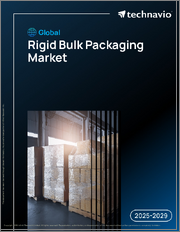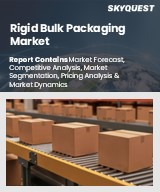
|
시장보고서
상품코드
1570863
벌크 액체 물류 시장, 기회, 성장 촉진요인, 산업 동향 분석과 예측(2024-2032년)Bulk Liquid Logistics Market, Opportunity, Growth Drivers, Industry Trend Analysis and Forecast, 2024-2032 |
||||||
벌크 액체 물류 세계 시장 규모는 2023년에 527억 달러로 평가되며, E-Commerce의 확대와 인프라의 진보에 의해 2024-2032년 5.5%의 CAGR을 보일 것으로 생각됩니다.
E-Commerce가 확대됨에 따라 다양한 제품 수요를 지원하기 위해 벌크 액체 취급을 포함한 효율적인 물류 솔루션에 대한 수요가 증가하고 있습니다. 또한 현대식 탱크 농장 개발, 운송망 강화, 첨단 저장 시설 등 인프라 구축은 벌크 액체의 원활하고 안전한 이동을 촉진합니다. 이러한 요인들이 종합적으로 적시에 배송을 보장하고 증가하는 액체 상품의 양을 처리함으로써 시장 성장을 가속하고 있습니다.
벌크 액체 물류 산업은 서비스, 최종 용도, 컨테이너 및 지역을 기준으로 세분화됩니다.
2023년에는 운송 부문이 시장 점유율의 60% 이상을 차지하며 괄목할 만한 성장을 이룰 것으로 예상됩니다. 첨단 안전 기능을 갖춘 특수 철도 유조차는 안전한 액체 운송을 보장하고, 유조 트럭을 이용한 도로 운송은 단거리 운송 및 최종 마일 배송에 필수적인 유연성을 제공하며, GPS 추적 및 실시간 온도 관리와 같은 기술 혁신은 도로 유조선 운송의 안전성과 효율성을 향상시킬 것입니다. 해상 운송은 국제 무역에 필수적인 해상 운송은 첨단 화물 취급 및 환경 보호 시스템을 갖춘 대형 유조선과 LNG 운반선을 사용하며, IoT 센서 및 자동 추적과 같은 디지털 기술은 물류 작업의 효율성과 안전성을 더욱 향상시킬 것입니다.
화학 산업은 2023년 시장 점유율 42%를 차지할 것으로 예상됩니다. 이 분야는 용제, 산, 염기와 같은 산업용 화학물질의 운송이 이루어지며, 누출 및 오염을 방지하기 위해 세심한 취급이 요구됩니다. 코팅제, 접착제, 플라스틱에 사용되는 특수 화학물질은 제품의 무결성을 보장하고 안전 규정을 준수하기 위해 첨단 격리 및 관리 시스템을 필요로 합니다. 또한 이 분야는 복잡한 공급망을 관리하기 위해 치밀한 물류 조정에 의존하고 있으며, 안전하고 효율적인 운송을 보장하기 위해 견고한 인프라와 첨단 기술의 필요성이 강조되고 있습니다.
아시아태평양 벌크 액체 물류 시장은 2023년 약 30% 시장 점유율을 차지할 것으로 예상되며, 2032년까지 큰 폭의 성장을 이룰 것으로 보입니다. 이 지역의 주요 업체로는 중국, 일본, 인도 등이 있습니다. 중국은 광범위한 제조거점과 인프라로 인해 가장 큰 액체 벌크 수출입 국가로 선두를 달리고 있습니다. 인도의 성장하는 화학 및 제약 부문은 현재 진행 중인 인프라 구축에 힘입어 액체 벌크 운송 수요에 크게 기여하고 있습니다. 일본의 액체 벌크 물류 관리의 첨단 기술과 효율성은 특히 화학 산업과 자동차 산업에서 높은 지역 표준을 확립하고 있습니다.
목차
제1장 조사 방법과 조사 범위
제2장 개요
제3장 업계 인사이트
- 에코시스템 분석
- 공급업체 상황
- 서비스 프로바이더
- 테크놀러지 프로바이더
- 최종사용자
- 이익률 분석
- 기술 혁신 상황
- 특허 분석
- 주요 뉴스와 구상
- 파트너십/협업
- 합병/인수
- 투자
- 애플리케이션 발표와 혁신
- 규제 상황
- 영향요인
- 촉진요인
- 실시간 데이터와 분석에 대한 수요 증가
- E-Commerce 분야의 부상
- 비용 효율과 확장성이 뛰어난 솔루션
- 기타 비즈니스·시스템과의 통합과 자동화
- 업계의 잠재적 리스크 & 과제
- 데이터·보안과 프라이버시에 관한 우려
- 서비스 정지나 다운타임에 대한 취약성
- 촉진요인
- 성장 가능성 분석
- Porter의 산업 분석
- PESTEL 분석
제4장 경쟁 구도
- 서론
- 기업 점유율 분석
- 경쟁 포지셔닝 매트릭스
- 전략 전망 매트릭스
제5장 시장 추산·예측 : 서비스별, 2021-2032년
- 주요 동향
- 운송
- 도로
- 철도
- 해상
- 보관·창고
- 하역
- 통관·서류 작성
- 기타
제6장 시장 추산·예측 : 용도별, 2021-2032년
- 주요 동향
- 화학제품
- 석유화학
- 식품 및 음료
- 의약품
- 농업
- 기타
제7장 시장 추산·예측 : 컨테이너별, 2021-2032년
- 주요 동향
- ISO 탱크
- 플렉시탱크
- 드럼통·팰릿
- 중간 벌크 컨테이너(IBC)
- 탱크 트레일러
제8장 시장 추산·예측 : 지역별, 2021-2032년
- 주요 동향
- 북미
- 미국
- 캐나다
- 유럽
- 영국
- 독일
- 프랑스
- 이탈리아
- 스페인
- 러시아
- 북유럽
- 기타 유럽
- 아시아태평양
- 중국
- 인도
- 일본
- 한국
- 뉴질랜드
- 동남아시아
- 기타 아시아태평양
- 라틴아메리카
- 브라질
- 멕시코
- 아르헨티나
- 기타 남미
- 중동 및 아프리카
- 남아프리카공화국
- UAE
- 사우디아라비아
- 기타 중동 및 아프리카
제9장 기업 개요
- Agility Logistics
- BDP International
- Bertschi Group
- Bulkhaul Limited
- Den Hartogh Logistics
- DHL Global Forwarding
- Hoyer Group
- InBulk Technologies
- InterBulk Group
- Katoen Natie
- Kemira
- Lindstrom Group
- Mauser Packaging Solutions
- Odyssey Logistics and Technology
- P&O Ferrymasters
- Sinotrans Limited
- Stolt-Nielsen Limited
- Suttons Group
- Transmark Logistics
- Vopak
The Global Bulk Liquid Logistics Market size was valued at USD 52.7 billion in 2023 and will exhibit a 5.5% CAGR between 2024 and 2032, driven by the expansion of e-commerce and advancements in infrastructure. As e-commerce grows, the demand for efficient logistics solutions, including bulk liquid handling, intensifies to support diverse product needs. Also, infrastructure improvements, such as the development of modern tank farms, enhanced transportation networks, and advanced storage facilities, facilitate the smooth and secure movement of bulk liquids. These factors collectively boost market growth by ensuring timely deliveries and accommodating increasing volumes of liquid commodities.
The bulk liquid logistics industry is segmented based on services, end-use, container, and region.
In 2023, the transportation segment captured over 60% of the market share and will grow commendably. Specialized rail tank cars with advanced safety features ensure secure liquid transit, while road transportation with tanker trucks offers essential flexibility for short distances and final-mile deliveries. Innovations like GPS tracking and real-time temperature control improve road tanker safety and efficiency. Sea transport is vital for international trade, using large tankers and LNG carriers equipped with advanced cargo handling and environmental protection systems. Digital technologies, including IoT sensors and automated tracking, further enhance the efficiency and security of logistics operations.
The chemicals industry garnered 42% of the market share in 2023. This segment involves transporting industrial chemicals like solvents, acids, and bases, which require meticulous handling to avoid leaks and contamination. Specialty chemicals used in coatings, adhesives, and plastics need advanced containment and management systems to ensure product integrity and comply with safety regulations. Additionally, the sector depends on precise logistical coordination to manage complex supply chains, highlighting the necessity for robust infrastructure and advanced technology to ensure secure and efficient transport.
Asia Pacific bulk liquid logistics market accounted for about 30% market share in 2023 and will experience substantial growth through 2032. Key players in the region include China, Japan, and India. China leads as the largest exporter and importer of liquid bulk due to its extensive manufacturing base and infrastructure. India's growing chemical and pharmaceutical sectors significantly contribute to liquid bulk transportation needs, bolstered by ongoing infrastructure improvements. Japan's advanced technology and efficiency in managing liquid bulk logistics, particularly in the chemical and automotive industries, establish high regional standards.
Table of Contents
Chapter 1 Methodology and Scope
- 1.1 Research design
- 1.1.1 Research approach
- 1.1.2 Data collection methods
- 1.2 Base estimates and calculations
- 1.2.1 Base year calculation
- 1.2.2 Key trends for market estimates
- 1.3 Forecast model
- 1.4 Primary research and validation
- 1.4.1 Primary sources
- 1.4.2 Data mining sources
- 1.5 Market definitions
Chapter 2 Executive Summary
- 2.1 Market 360° synopsis, 2021 - 2032
Chapter 3 Industry Insights
- 3.1 Industry ecosystem analysis
- 3.2 Supplier landscape
- 3.2.1 Service providers
- 3.2.2 Technology providers
- 3.2.3 End user
- 3.3 Profit margin analysis
- 3.4 Technology and innovation landscape
- 3.5 Patent analysis
- 3.6 Key news and initiatives
- 3.6.1 Partnership/Collaboration
- 3.6.2 Merger/Acquisition
- 3.6.3 Investment
- 3.6.4 Application launch and innovation
- 3.7 Regulatory landscape
- 3.8 Impact forces
- 3.8.1 Growth drivers
- 3.8.1.1 Increased demand for real-time data and analytics
- 3.8.1.2 Rise in e-commerce sector
- 3.8.1.3 Cost-efficient and scalable solutions
- 3.8.1.4 Integration and automation with other business systems
- 3.8.2 Industry pitfalls and challenges
- 3.8.2.1 Data security and privacy concerns
- 3.8.2.2 Vulnerability to service outages and downtime
- 3.8.1 Growth drivers
- 3.9 Growth potential analysis
- 3.10 Porter's analysis
- 3.11 PESTEL analysis
Chapter 4 Competitive Landscape, 2023
- 4.1 Introduction
- 4.2 Company market share analysis
- 4.3 Competitive positioning matrix
- 4.4 Strategic outlook matrix
Chapter 5 Market Estimates and Forecast, By Services, 2021-2032 ($Mn)
- 5.1 Key trends
- 5.2 Transportation
- 5.2.1 Road
- 5.2.2 Rail
- 5.2.3 Sea
- 5.3 Storage and warehousing
- 5.4 Loading and unloading
- 5.5 Customs clearance and documentation
- 5.6 Others
Chapter 6 Market Estimates and Forecast, By End-Use, 2021-2032 ($Mn and Volume)
- 6.1 Key trends
- 6.2 Chemicals
- 6.3 Petrochemicals
- 6.4 Food and beverages
- 6.5 Pharmaceuticals
- 6.6 Agriculture
- 6.7 Others
Chapter 7 Market Estimates and Forecast, By Container, 2021-2032 ($Mn and Volume)
- 7.1 Key trends
- 7.2 ISO tanks
- 7.3 Flexitanks
- 7.4 Drums and barrels
- 7.5 Intermediate bulk containers (IBCs)
- 7.6 Tank trailers
Chapter 8 Market Estimates and Forecast, By Region, 2021-2032 ($Mn and Volume)
- 8.1 Key trends
- 8.2 North America
- 8.2.1 U.S.
- 8.2.2 Canada
- 8.3 Europe
- 8.3.1 UK
- 8.3.2 Germany
- 8.3.3 France
- 8.3.4 Italy
- 8.3.5 Spain
- 8.3.6 Russia
- 8.3.7 Nordics
- 8.3.8 Rest of Europe
- 8.4 Asia Pacific
- 8.4.1 China
- 8.4.2 India
- 8.4.3 Japan
- 8.4.4 South Korea
- 8.4.5 ANZ
- 8.4.6 Southeast Asia
- 8.4.7 Rest of Asia Pacific
- 8.5 Latin America
- 8.5.1 Brazil
- 8.5.2 Mexico
- 8.5.3 Argentina
- 8.5.4 Rest of South America
- 8.6 MEA
- 8.6.1 South Africa
- 8.6.2 UAE
- 8.6.3 Saudi Arabia
- 8.6.4 Rest of MEA
Chapter 9 Company Profiles
- 9.1 Agility Logistics
- 9.2 BDP International
- 9.3 Bertschi Group
- 9.4 Bulkhaul Limited
- 9.5 Den Hartogh Logistics
- 9.6 DHL Global Forwarding
- 9.7 Hoyer Group
- 9.8 InBulk Technologies
- 9.9 InterBulk Group
- 9.10 Katoen Natie
- 9.11 Kemira
- 9.12 Lindstrom Group
- 9.13 Mauser Packaging Solutions
- 9.14 Odyssey Logistics and Technology
- 9.15 P&O Ferrymasters
- 9.16 Sinotrans Limited
- 9.17 Stolt-Nielsen Limited
- 9.18 Suttons Group
- 9.19 Transmark Logistics
- 9.20 Vopak



















